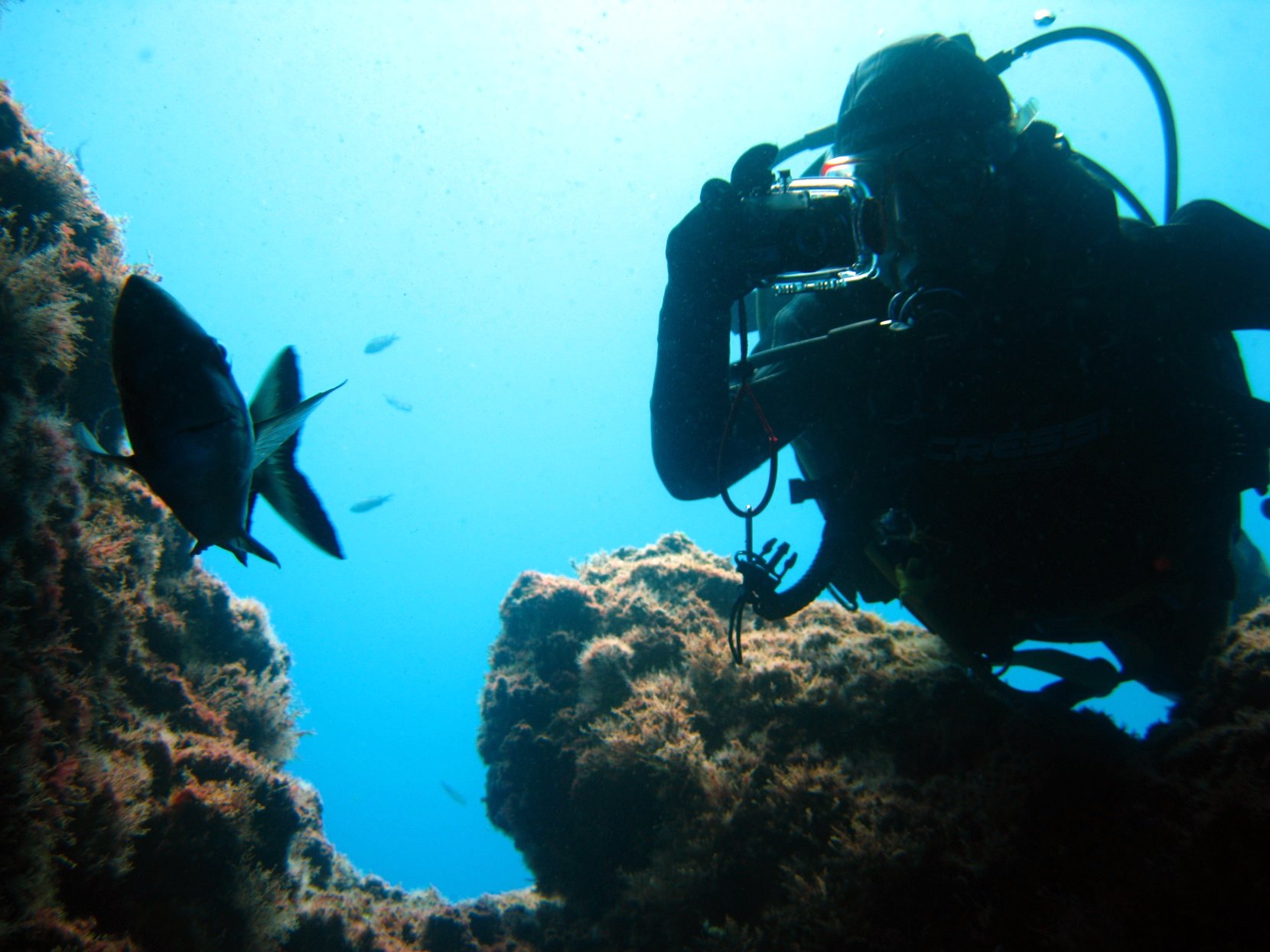A choice experiment is undertaken to elicit preferences of scuba divers in the Marine Protected Area of Medes Islands (Spain). This is the first non-market valuation study of a typical Mediterranean habitat, the Coralligenous, which is characterized by high biodiversity, geomorphologic complexity and iconic species like gorgonians. This habitat is not only very attractive for scuba diving, but is also threatened by climate change and ocean acidification, which is our motivation for undertaking this valuation study. Choice attributes include the number of divers on a diving trip, underwater landscape, presence of jellyfish species, expected state of gorgonians, and price of a dive. Results of multinomial and random parameter logit models indicate a decrease in the attractiveness of Coralligenous areas for scuba diving as a result of both environmental pressures. Estimates of welfare values show that the local extinction of gorgonians had the highest negative effect on utility equivalent to a cost of €60 per dive, followed by abundance of stinging jellyfish with a cost of €26 per dive. Choice probabilities for the selection of different dive experiences indicate the highest rejection rates for the combined sea warming and acidification scenarios.
Luís Campos
2016
MedCities
Rodrigues L.C., van Den Bergh J.C.J.M., Loureir M.L., Nunes P.A.L.D., Rossi S. (2016) The Cost of Mediterranean Sea Warming and Acidification: A Choice Experiment Among Scuba Divers at Medes Islands, Spain. Environmental and Resource Economics, 63 (2): 289-311.

